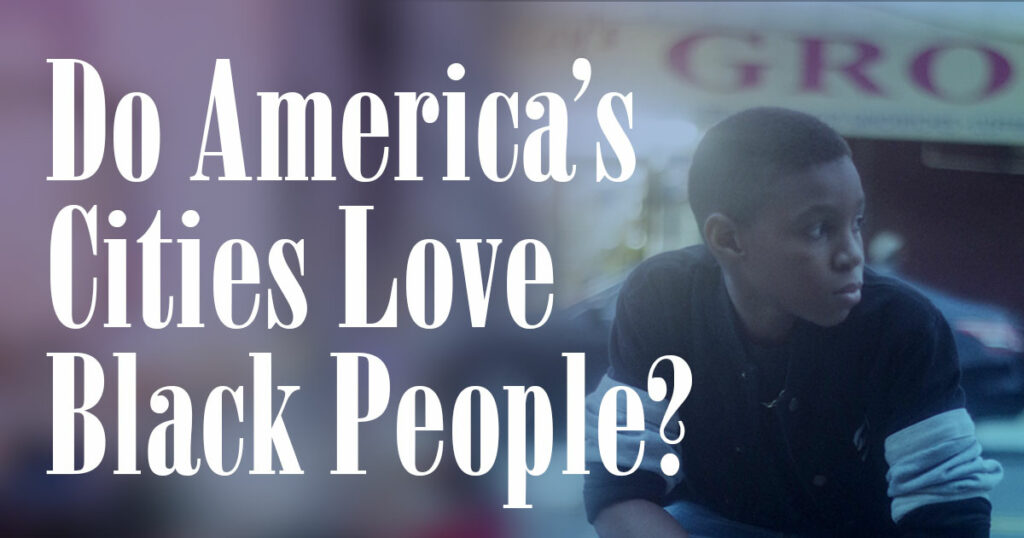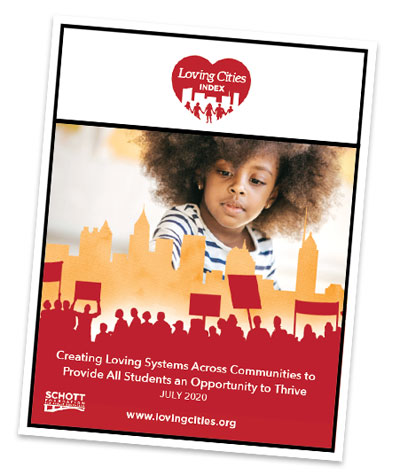Blog
Celebrate Love Every Day by Building a Loving Community

Think about someone you love dearly. You feed someone you love, you clothe them, you ensure they have shelter. In loving communities, children have access to healthy food, parents are paid livable wages and schools have the resources they need for teachers to teach and students to learn.
It’s a simple vision and yet in too many communities in the U.S. today, children are unable to access the loving systems that provide them an opportunity to thrive. It’s 2024, and race and ethnicity can still determine which children are likely to receive the loving supports they need.
This can only exist if we allow our differences, divisions and hate to determine the direction of our nation. But there’s another direction. We can choose to unite and be guided by the strongest force inside each of us—love. Rather than giving into the narratives and visions of a divided nation we can dare to envision, co-construct and exist in a loving nation.
Loving Communities Create a Loving Nation
Everyone wants the best for their child and those they love. But can we imagine a community that wants that for all its children?
At the Schott Foundation, we connect with many “loving partners” across the country who lend their efforts to build loving communities. At the local level, that can look like advocating and voting for ballot measures to guarantee access to early care and learning for all children or advocating for city council to provide more affordable housing for families.
These are community-wide efforts like in New Bedford, where residents took the lead in outlining how they wanted the school district to spend $74 million in new federal funds. Or in California, where community and youth groups across the state came together and passed a historic $3 billion for community schools with wrap-around supports for children and families.
Institutionalized Lovelessness: The Opposite of Loving Communities
Yet at this point in our country, apathy is the opposite of those loving communities. When apathy is not personal but structural, it becomes what expert Dr. Gail Christopher described systemic racism as: institutionalized lovelessness.
It can be found in the social policies and practices that create disparate outcomes identifiable by zip code. One group of children with loving parents on the northside who wake up under the sun are likely to graduate from high school, go to college and have robust life expectancies. Another group of children on the southside who have loving parents wake up under the sun are likely to miss out on the life changing opportunities that completing high school and college can bring, and as a result have a shortened life expectancy.
Geographically, lovelessness also means that families living in rural America—who make up almost 20% of the U.S. population—face inequities that result in worse health care than that of urban and suburban residents.
Are these “tale of two cities” outcomes caused by a shortage of parents’ love for their children? Of course not: the cause is the extraction of love from communities’ social systems and services. It is the opposite outcome of a loving community and what works against our vision of a loving nation.
Investments to Build Loving Communities
As donors and philanthropic investors, too often our theories of action and key performance indicators (KPIs) attempt to solve community structural problems with individual programmatic solutions. These critical programs can provide much needed supports to children and families, but are usually limited in the number of people supported or timeframe. As much as these programs provide progress for some, investing in a loving community means efforts to adopt transformative policies that impact all children and build power among those families most affected. And to turn love from a noun to a verb, from sentiment to action, you need power.
As an intermediary, Schott Foundation bridges philanthropy and parents, youth, and educators across the country working to create the systems necessary for loving communities. Powerful policies are advocated by loving partners coming together: parents who are motivated by not just their own children’s challenges but their neighbor’s children’s challenges; educators who teach in local schools; community organizers who build connections across neighborhoods, cities, counties, and states. Resourcing love means supporting these advocates, who are closest to the problems and solutions.
For all of us as funders, this can mean going beyond traditional grants and grant cycles. It can mean moving from analyzing indicators to supporting advocacy infrastructure in our grantmaking. It can mean not only providing partners dollars to complete tasks, but also transferring wealth to these organizations to give them and their critical work a strong foundation. We endow museums, universities, hospitals — why don’t we endow the organizations that give us the best shot at building loving communities?
The birth of every new child is a gift, an opportunity to redefine our humanity. It is not too late for us to ensure each child has an opportunity to thrive. In fact, this moment calls for us to boldly bridge the breach, to shepherd our next generation of children away from a nation of divisions to a nation bonded the most powerful force in us and in the universe – love.
Dr. John H. Jackson is President and CEO of the Schott Foundation for Public Education.



